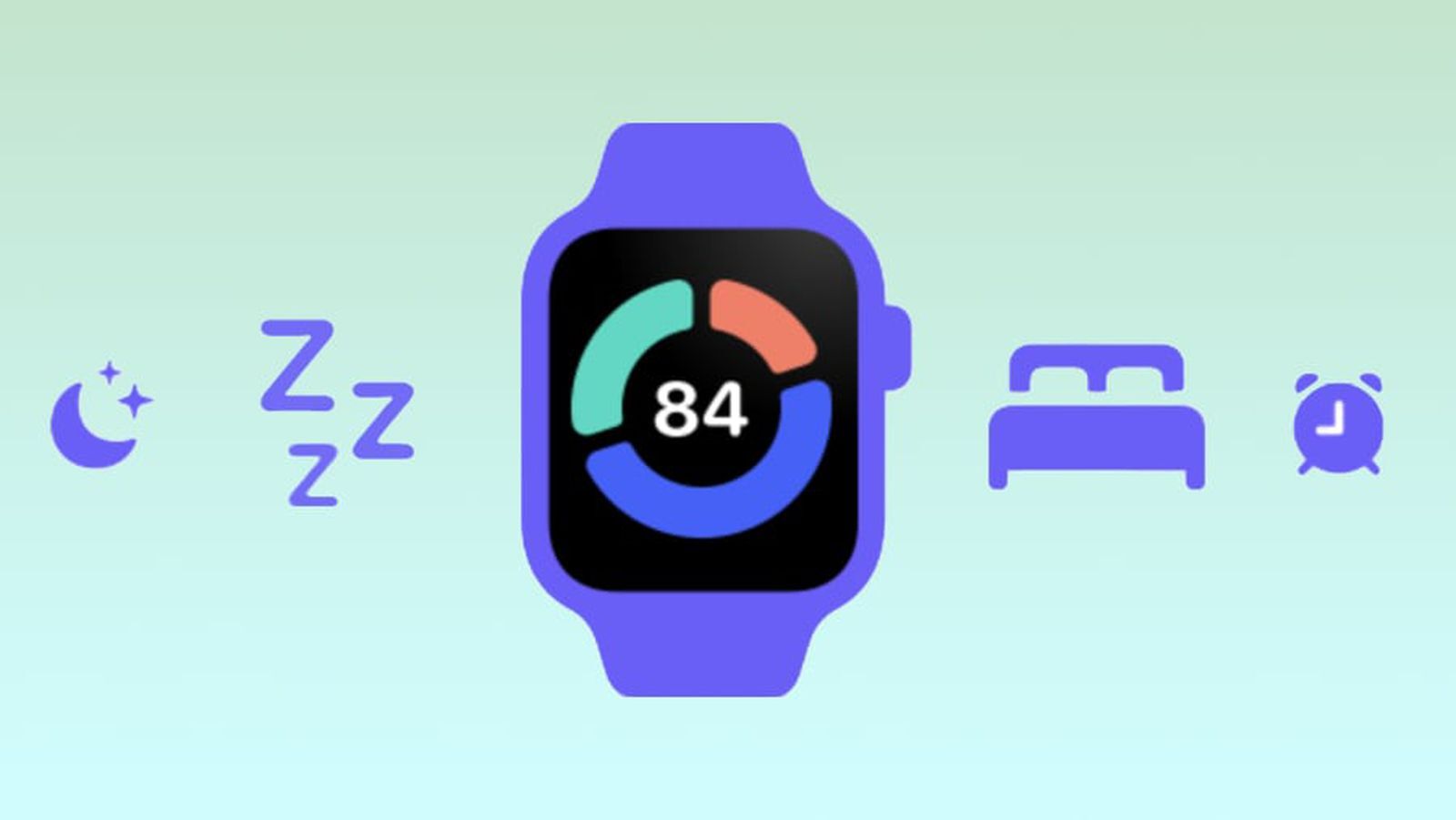Apple Watch users may soon get a major sleep tracking upgrade, as the company seems to be working on a sleep score feature. This potential new addition was discovered in the latest iOS 26 beta release, which came out today. A MacRumors contributor found a new image within the Health app’s code, showing an Apple Watch with the number ’84’ displayed on its screen, surrounded by three bars. 
The colors of the bars align with those used to indicate different sleep stages tracked by the watch.
In the image, four sleep-related icons are visible, including a moon with stars, a ‘zzz’ symbol, a bed, and an alarm clock. Another spot in the code also reveals a thermometer icon. The image’s filename, ‘Watch Focus Score,’ strongly hints that this feature will provide users with a sleep-related score. This score could potentially reflect the quality of sleep based on the Sleep Focus feature, which rates sleep stages.
At the moment, the Apple Watch tracks sleep by providing users with data on the total amount of sleep and the stages of sleep: REM, Core, and Deep Sleep, alongside time spent awake during Sleep Focus. However, the addition of a sleep score would give users a more comprehensive understanding of their sleep quality.
Sleep scores aren’t a novel concept in the world of wearables. Devices from Garmin, the Oura Ring, and Huawei already offer users similar sleep scores, often used to generate a ‘readiness score.’ Samsung’s latest Galaxy Watch 8 takes it further, offering a feature called Sleep Coaching. The presence of the thermometer icon suggests that Apple could integrate various metrics into the score, similar to the approach used in the Vitals app on watchOS 11. This indicates that Apple is likely taking multiple factors into account when calculating the sleep score.
For many smartwatch users, sleep tracking is one of the primary reasons for wearing the device. Any enhancements to this feature are welcome. While I’m not sure how thrilled I’ll be about a numerical value showing how poor my sleep often is, it could serve as a useful motivator for improvement. At the very least, it might be another score I’ll ignore in favor of more actionable health data.